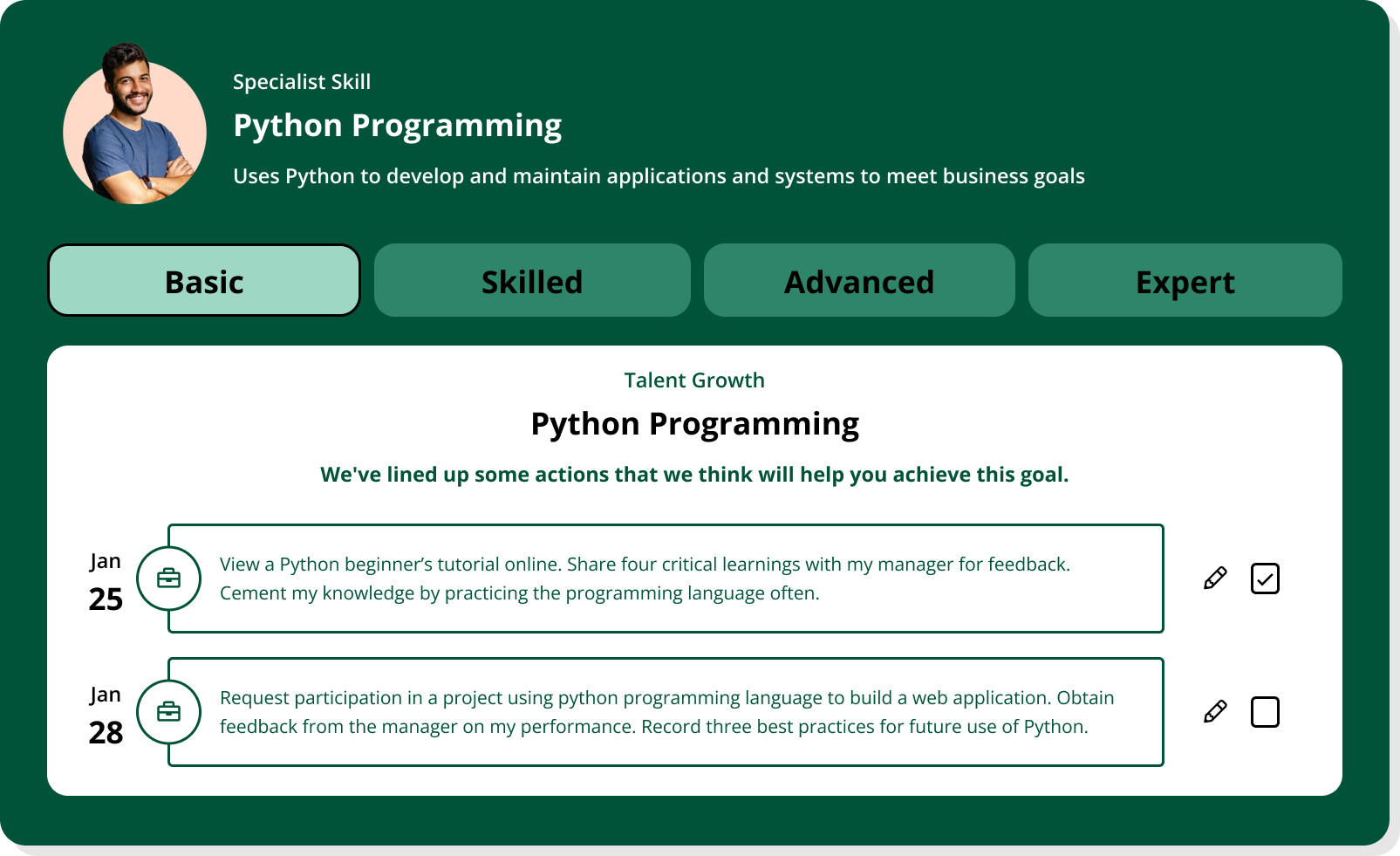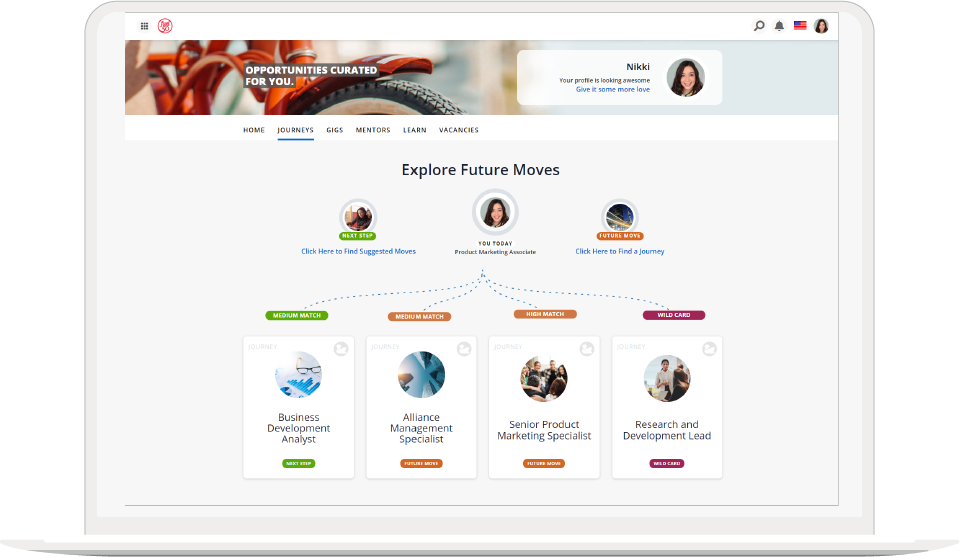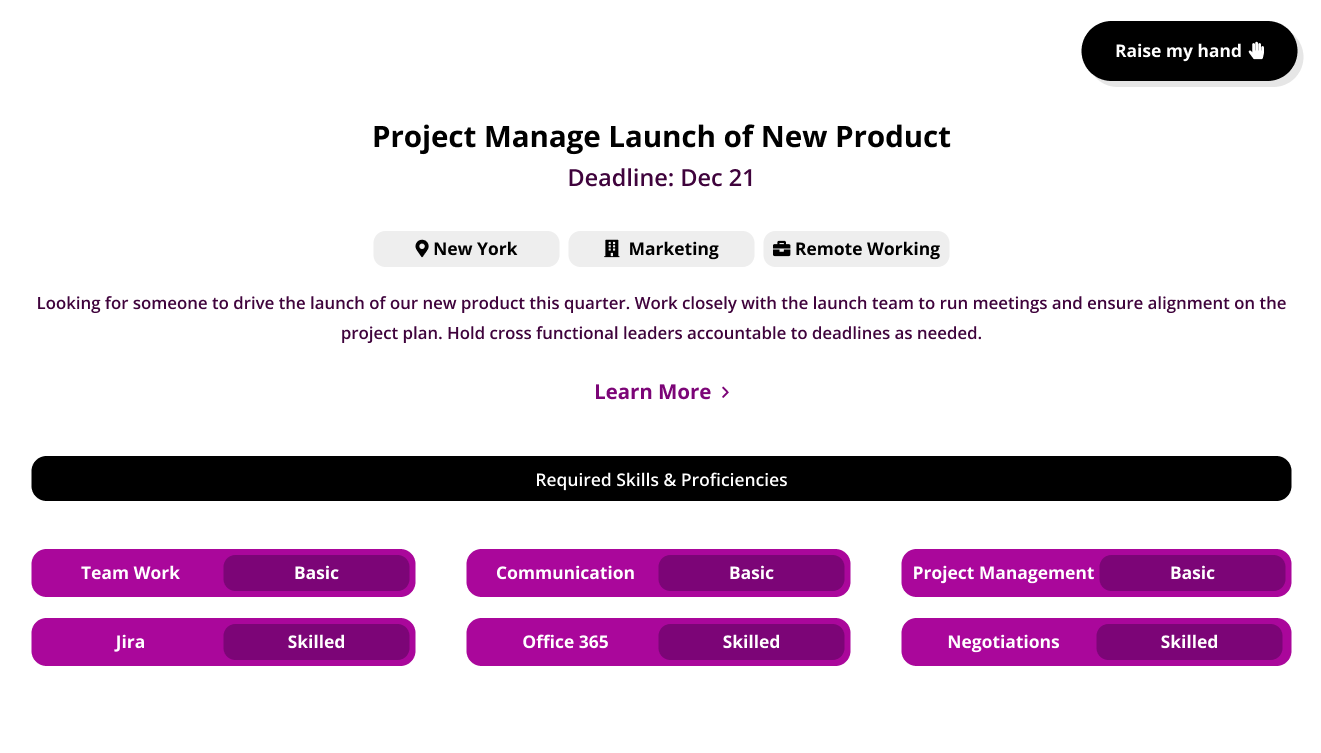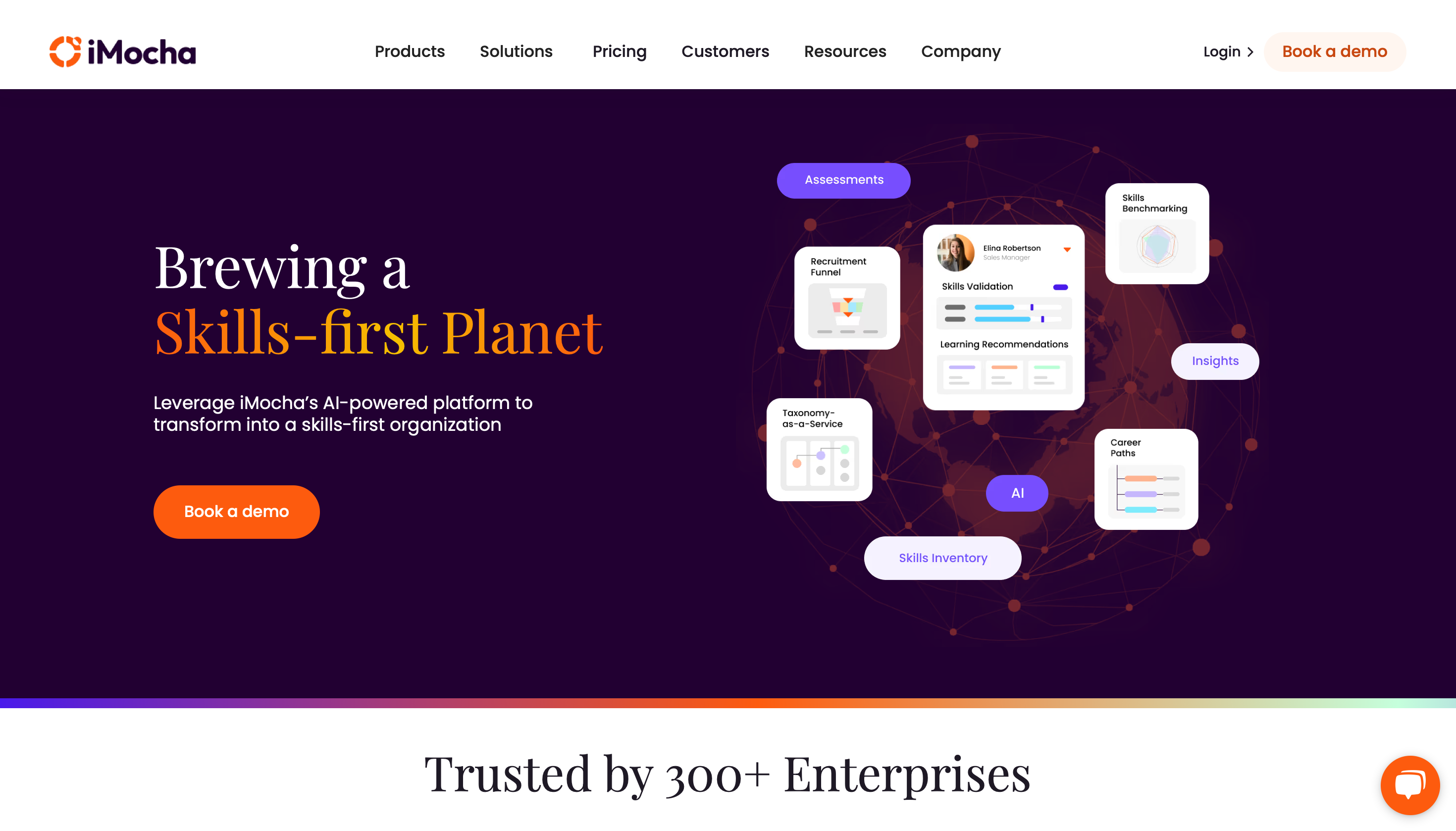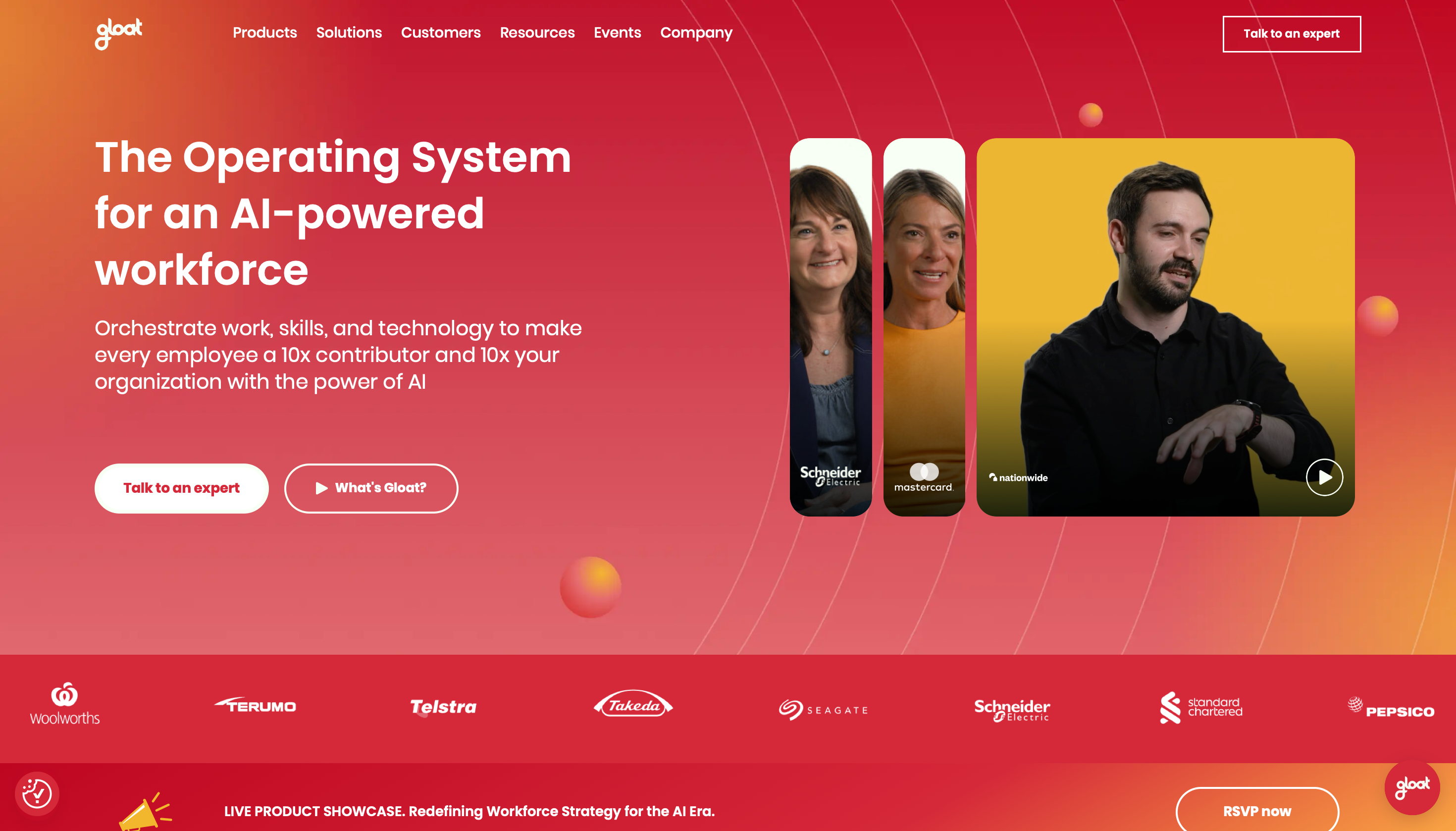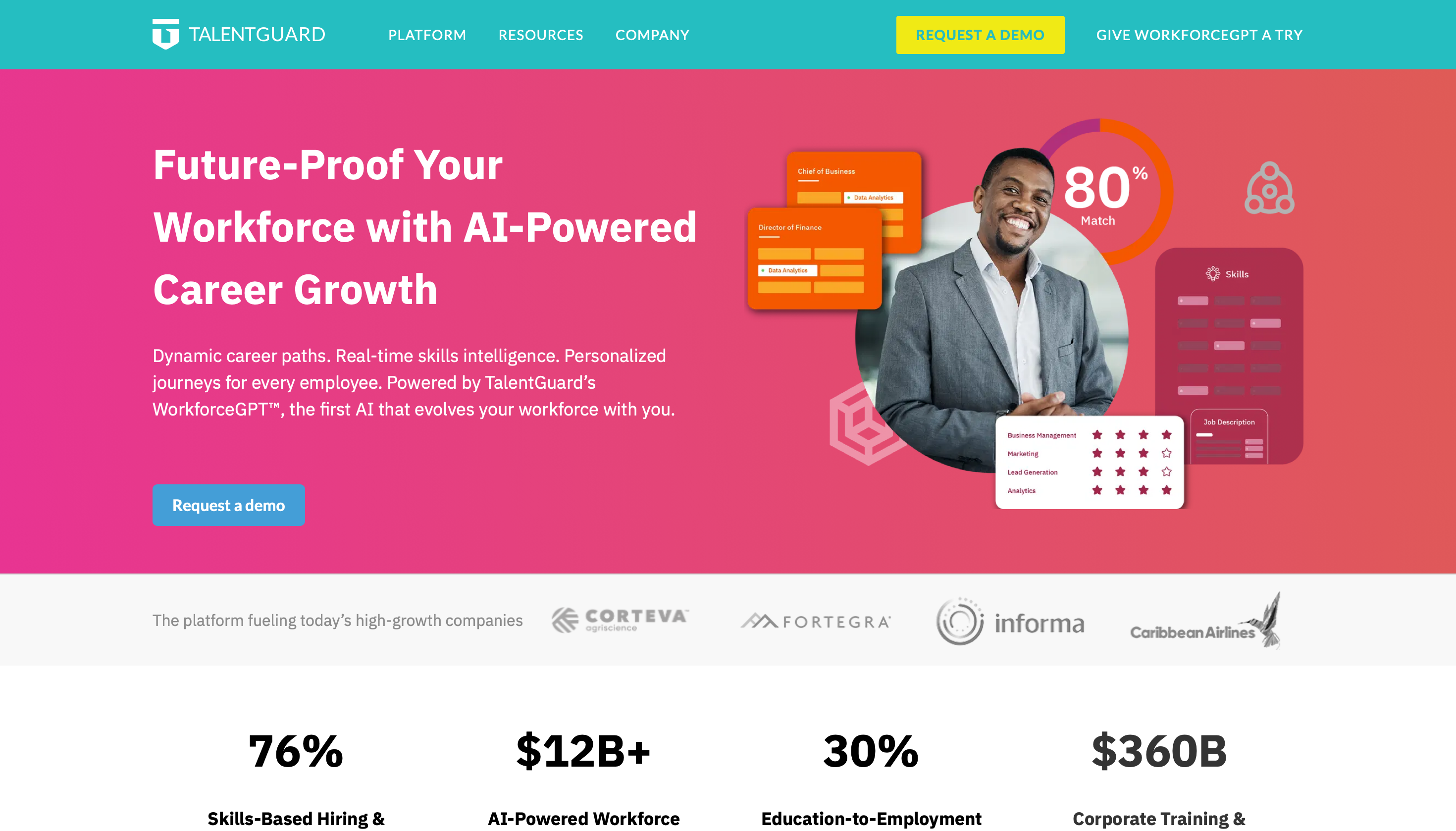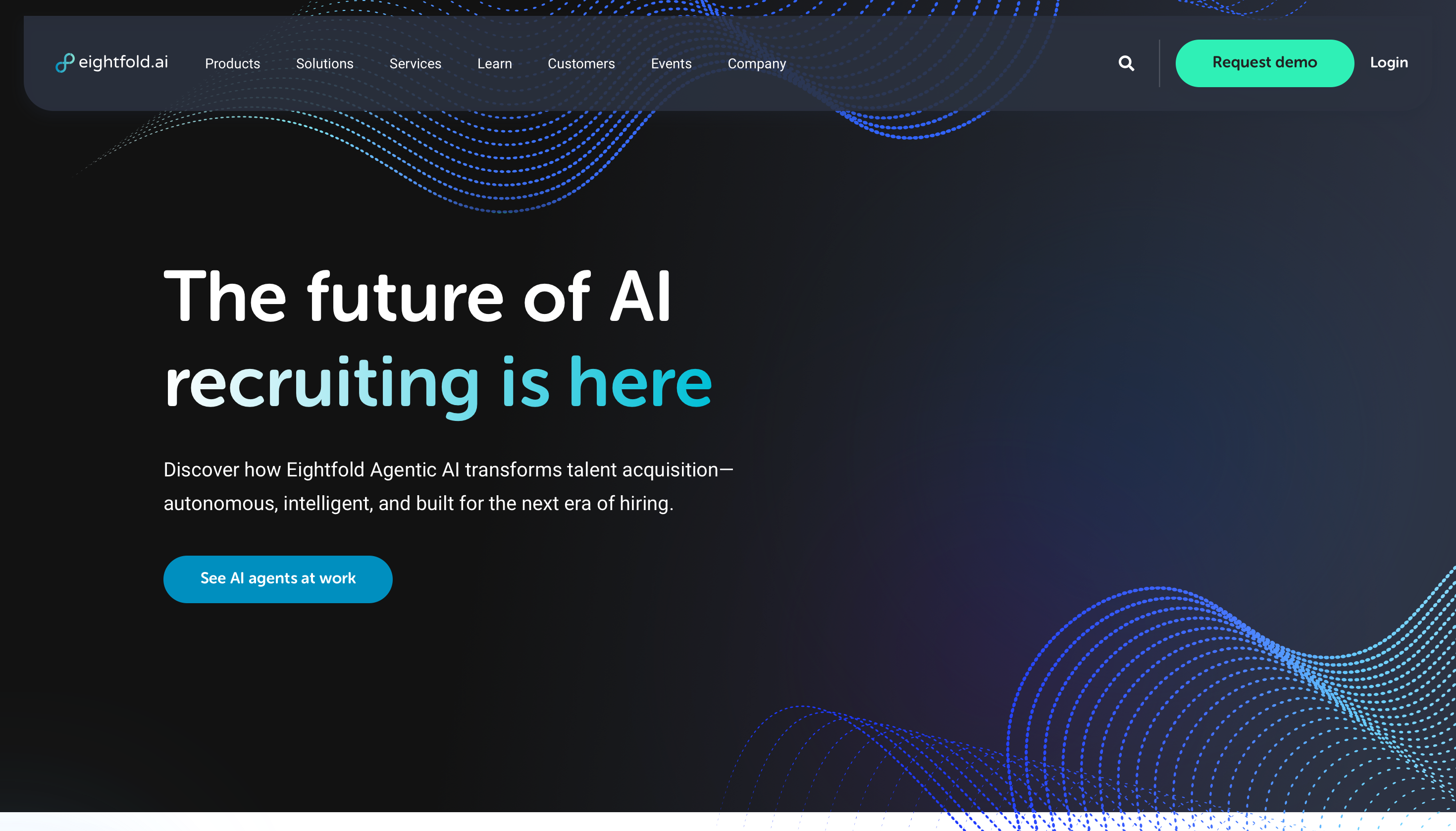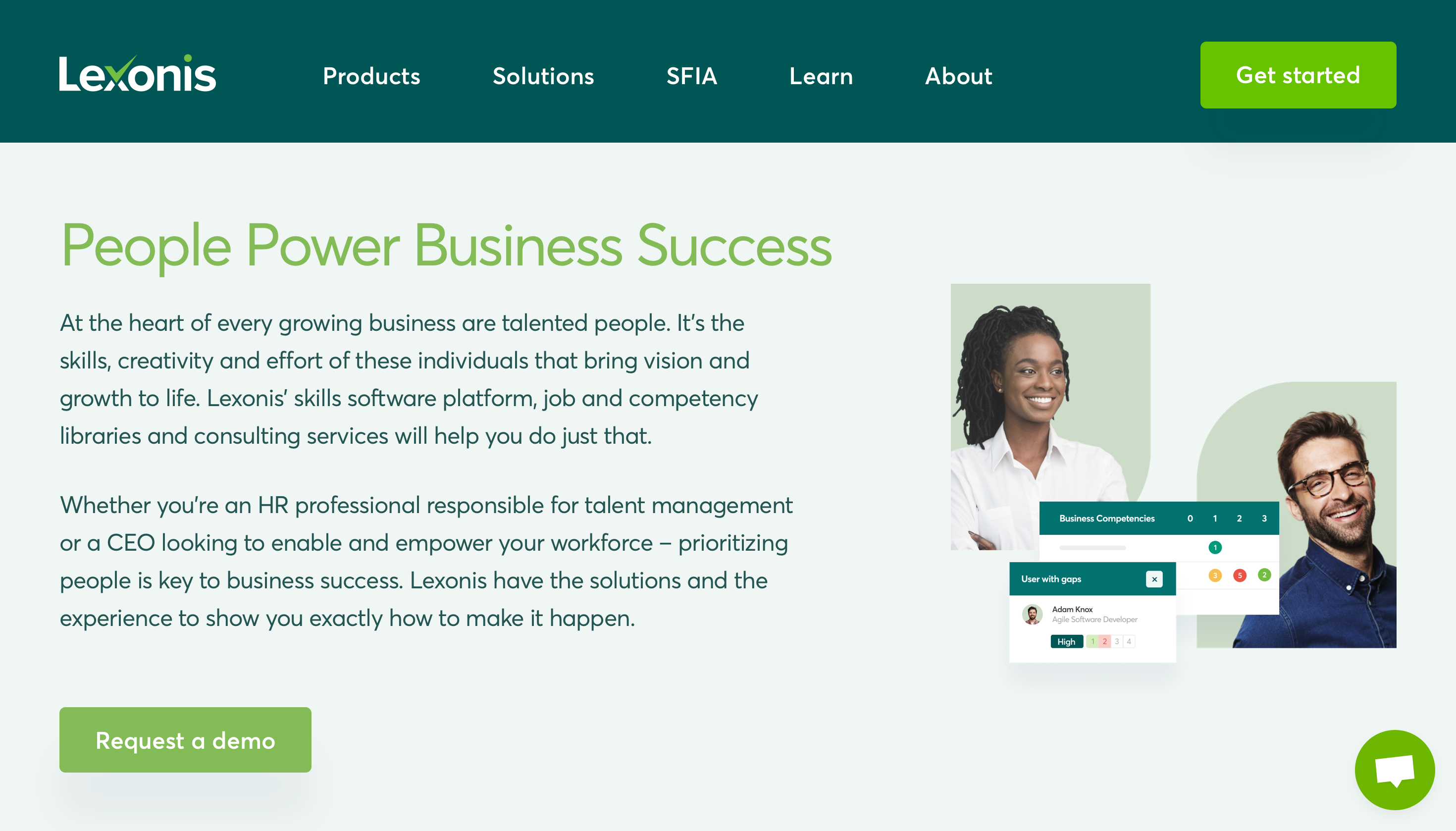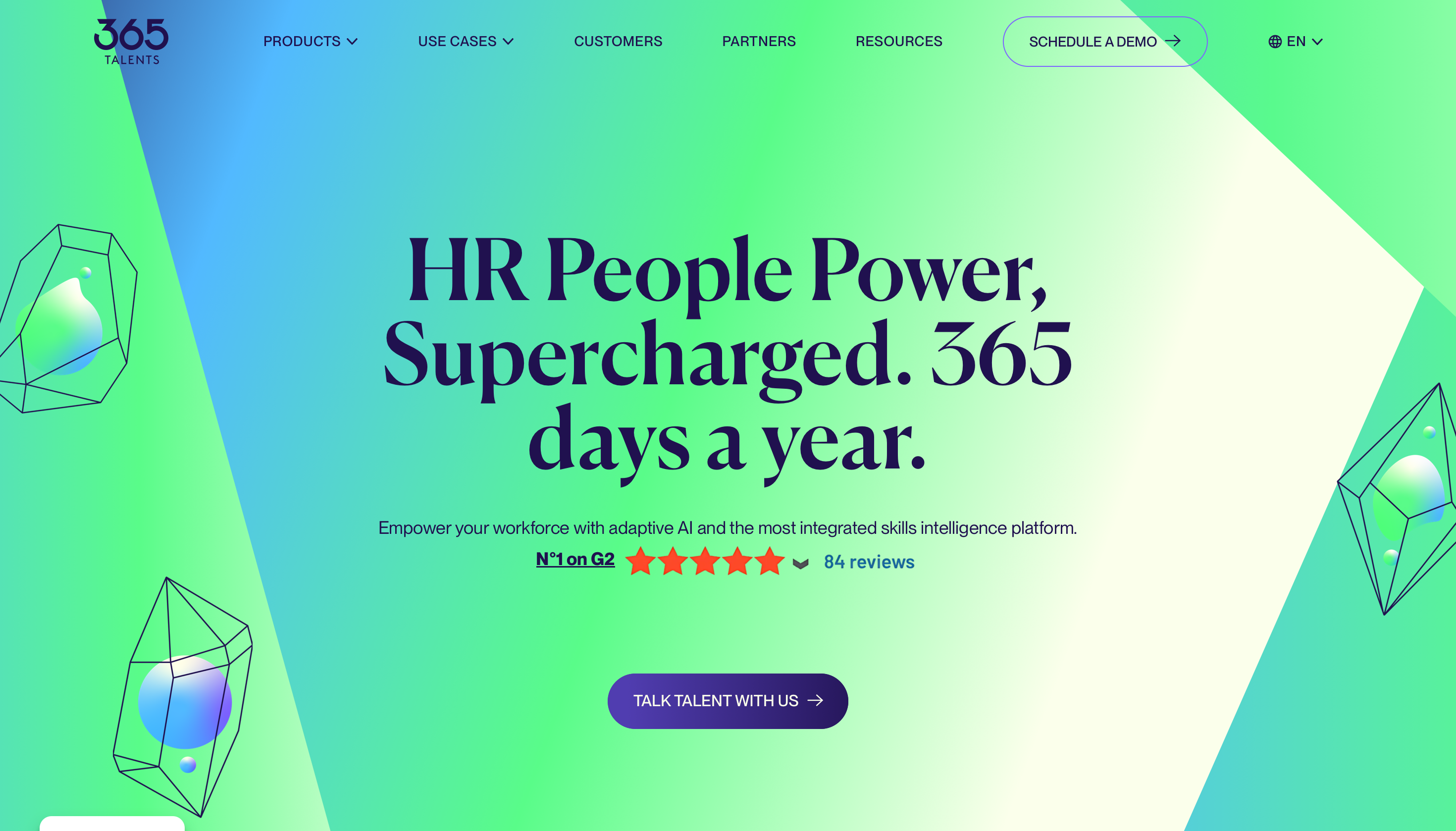“We invested millions in training last year, but I still can’t tell you what skills we actually have in our organization.” — most Fortune 500 CHROs.
Despite record spending on learning and development ($101.1 billion in the US alone in 2023), most organizations remain dangerously blind to their actual skills inventory.
The consequences of this include: delayed critical projects because you can’t find the right internal talent; expensive external hiring for skills that already exist within your workforce; and valuable employees leaving because they don’t see growth opportunities that align with their capabilities.
This is why skills mapping software has evolved from basic competency tracking to deliver AI-powered skills intelligence that directly impacts retention, productivity, and organizational agility.
With that in mind, we’ve identified seven solutions that are transforming how organizations understand and leverage their talent.
Let’s examine these platforms that are redefining skills management in 2025.
Fuel50: Revolutionizing skills development and internal mobility through expert-driven intelligence
Fuel50 stands apart in the skills landscape through its unique combination of AI power and human expertise.
While other platforms rely solely on algorithms and keyword matching, Fuel50’s skills ontology is meticulously crafted by industrial-organizational psychologists.
This human-AI partnership creates a skills framework that captures nuances machines alone miss. That attention to detail is particularly crucial for leadership capabilities and soft skills that drive 80% of workplace success but are notoriously difficult to quantify.
Organizations using Fuel50 consistently see 60% reductions in employee turnover—not just temporary improvements, but sustained talent retention that directly boosts their bottom line. With the average cost of replacing a professional employee reaching 150% of their annual salary, this decreased turnover translates to millions saved annually for mid-sized enterprises.
The difference lies in Fuel50’s emphasis on the employee experience. Rather than treating workers as collections of skills to be deployed, the platform constructs a “career DNA” for each individual, factoring in aspirations, work styles, and motivations. This holistic approach results in more meaningful career pathing and significantly higher engagement rates.
Fuel50’s talent marketplace functionality transcends traditional internal jobs boards by intelligently matching employees to projects, gigs, mentorship opportunities, and learning experiences based on both current skills and developmental needs.
This capability has proven transformative for organizations like KeyBank, which saw a 100% increase in participation for their Aspiring Leaders Program and a 60% increase in overall training engagement after implementation.
Implementation timelines further demonstrate Fuel50’s advantage in the market: While enterprise HR technology deployments typically span 6-12 months, Trane Technologies successfully launched Fuel50 globally to 20,000 employees in just two.
Moreover, the platform’s ability to transform traditional career frameworks into dynamic, skills-based architectures also provides unprecedented agility in talent management. When Allied Irish Banks (AIB) needed to replace their complex grading structure with transparent career levels, Fuel50 enabled this structural overhaul while maintaining a 94% activation rate among employees, demonstrating both organizational impact and individual value.
iMocha: Precision skills assessment through AI-driven technology
iMocha distinguishes itself through the most comprehensive skills assessment library in the market, featuring over 3,000 skills and more than 100,000 questions. What makes iMocha particularly valuable is how it bridges the gap between assessment and action.
Its Skills Intelligence Cloud, launched in 2023, has evolved to deliver targeted upskilling recommendations directly tied to assessment results. For organizations that struggle with technical talent verification, iMocha’s code simulators provide real-world scenarios that evaluate practical application rather than theoretical knowledge.
The platform’s ability to craft a customized skills taxonomy for organizations enables a more strategic approach to workforce planning. Rather than forcing companies into a one-size-fits-all framework, iMocha allows for the identification of critical skills within a given company—a significant advantage for businesses in rapidly evolving sectors.
Gloat: Transforming competency mapping with dynamic, market-responsive ontology
Gloat tackles skills management with its market-responsive ontology that continuously evolves based on industry trends and organizational data. That adaptable nature prevents skills from becoming outdated in the system, which is a common problem with more static platforms.
What sets Gloat apart is its internal marketplace functionality that facilitates talent mobility based on skills rather than job titles or departments. By breaking down organizational silos, Gloat enables companies to deploy talent where it’s needed most, regardless of reporting structures.
The career path tools give employees clear visibility into how their current skills align with various roles and specifically which skills they need to develop for future positions.
The platform’s AI-driven analytics provide executives with unprecedented insights into organizational skill gaps, enabling more proactive workforce planning.
TalentGuard: Connecting competency management to strategic workforce planning
TalentGuard is notable for its integrated approach to competency management and strategic workforce planning. Unlike platforms that focus primarily on current skills, TalentGuard emphasizes the connection between skills development and long-term organizational objectives.
Its WorkforceGPT Copilot, an AI assistant that automates many aspects of competency management, has revolutionized how HR teams maintain skill frameworks. Meanwhile, the solution’s evidence-based competency records are particularly valuable for regulated industries where demonstrating workforce competence is a compliance requirement. Healthcare organizations that use TalentGuard have successfully reduced compliance-related penalties by implementing more rigorous competency tracking.
Additionally, the platform’s succession planning tools are among the most sophisticated available, enabling organizations to build talent pipelines for critical roles based on skills and competencies rather than subjective assessments.
Eightfold: Deep learning intelligence for hidden talent discovery
Eightfold’s application of deep learning to predict career trajectories distinguishes it in the skills mapping market. Rather than simply cataloging existing skills, it employs AI to analyze patterns across millions of career paths and identify potential, even when it’s not obvious.
The platform’s ability to recognize adjacent and transferable skills has proven particularly valuable as organizations increasingly need to reskill employees for entirely new roles. Its Project Marketplace feature facilitates experiential skill development by matching employees to short-term projects based on both current abilities and developmental needs. This approach is a win-win by helping organizations complete critical projects while employees develop new competencies in a practical setting.
What makes Eightfold particularly powerful is its ability to provide skills intelligence across the entire talent lifecycle—from recruitment through development, internal mobility, and retention. This comprehensive approach provides organizations with a unified view of talent capabilities rather than the fragmented picture common with point solutions.
Lexonis: Building future-proof competency frameworks through AI enhancement
Lexonis has carved out a unique position by focusing specifically on competency framework building and management. Its AI-assisted framework development tools significantly reduce the time required to construct and maintain skill taxonomies from months to weeks, according to client testimonials.
The platform’s tiered approach (with Lexonis Essentials, TalentScape, and CareerTrack) allows organizations to scale their competency management efforts as their needs evolve. That flexibility is particularly valuable for mid-sized companies that may not need the full functionality of enterprise solutions initially.
Lexonis’ emphasis on career pathing differentiates it from more basic competency management tools. The platform’s integration with learning management systems creates a seamless connection between identified skill gaps and developmental resources.
365Talents: Multilingual skills detection for global enterprise needs
365Talents addresses a critical challenge for multinational organizations: managing skills across different languages and geographies. Its multilingual capabilities (which support over 45 languages) enable global skills management without the information silos common in international operations.
The platform’s “skills DNA” technology employs a more holistic approach to skill mapping than many of its competitors, analyzing various data sources to craft comprehensive skill profiles rather than relying solely on self-reported information.
For companies with hybrid and remote workforces, 365Talents offers robust skills-matching across different work arrangements and time zones. This capability has proven increasingly valuable as organizations embrace more flexible work models while still needing to deploy talent effectively.
365Talents’s focus on project-based work allocation aligns well with the growing trend of internal gig economies in large enterprises.


